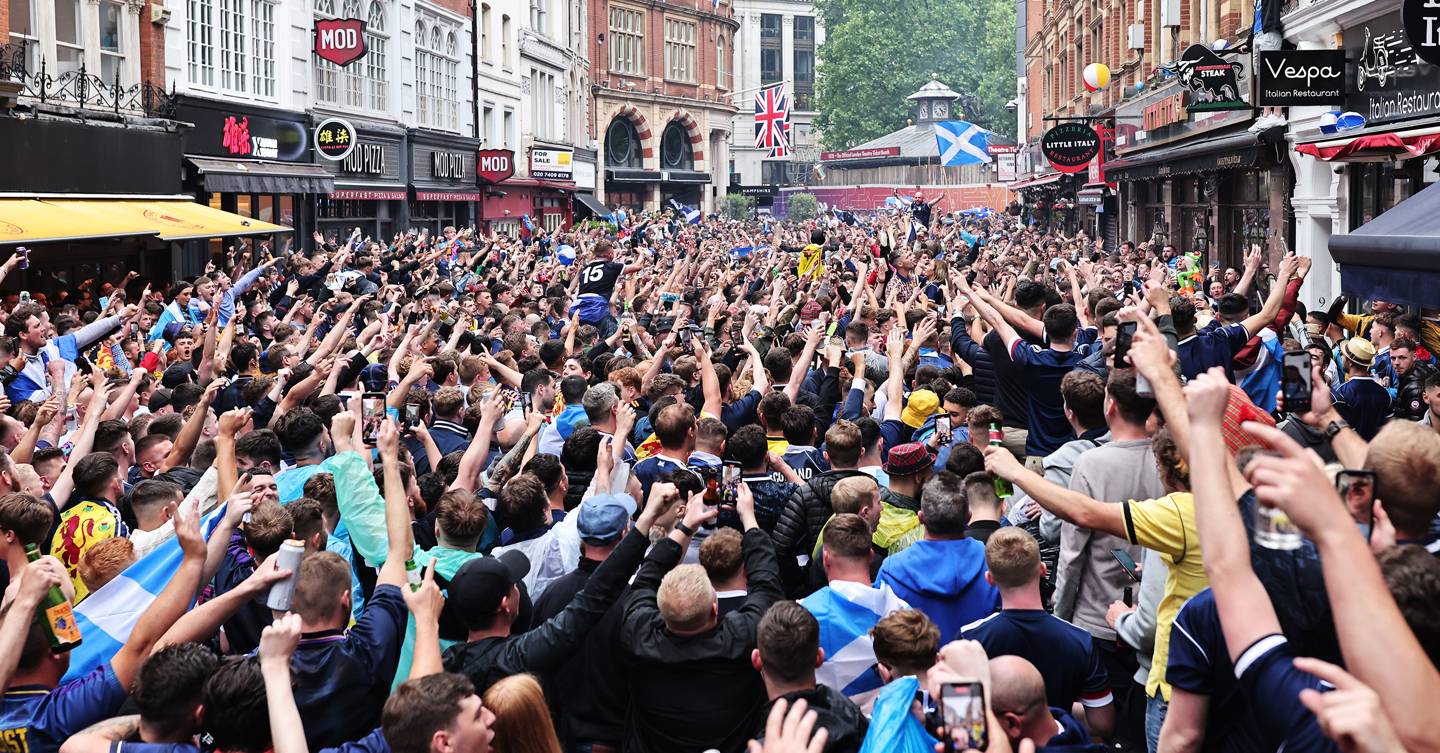Social restrictions and the seemingly ever-changing rules surrounding the pandemic are hard to keep up with at the best of times. But we’re guessing that you, like us, may have been more than a little incredulous when Boris announced the latest changes to the roadmap last week. It was confirmed that Coronavirus restrictions would remain in place in England for another four weeks beyond the predicted June 21st unlocking, but many of the choices made by the government seemed it arbitrary at best, downright sexist at worst.
Tens of thousands of (mostly male) football fans have been permitted to pile into stadiums to watch the Euro 2020 games – supported on Twitter by Boris himself – while the crowds were out in force to watch the races at Ascot. More than 22,000 Scotland fans travelled to London at the weekend to watch the much-anticipated Euro 2020 game against England, celebrating in the streets late into the night. Wimbledon and the remaining Euro 2020 games at Wembley are among more events poised to go ahead with larger crowds, alongside a number of trial indoor events. Even the Prime Minister has been enjoying relaxed regulations, as he was pictured with other politicians hobnobbing at an informal barbecue at the G7 Summit, with no masks or social distancing in sight.
The wedding industry, however, which comprises a predominantly female work force, has been held back once again. Stand up drinks receptions at hospitality venues are still banned, along with communal singing and dancefloors. Masks must be worn inside, risk assessments must be carried out and social distancing must be maintained. Outdoor civil wedding ceremonies will now be allowed in England and Wales from July 1st, but there’s no doubt that the sector has been unfairly hit.
The wedding industry in the UK is worth a whopping £14.7 billion a year and 80 per cent of the workforce is female, according to What About Weddings, the community organisation set up to support the wedding business, highlight discrepancies in the rules and lobby for change. “After weeks of increasing pressure, we are incredibly frustrated that yet again, the government has failed to give both couples and businesses what they deserve after over a year of postponements and months of uncertainty,” What About Weddings said in a statement after the Prime Minister’s most recent announcement. “Yet again the government has failed to respect and understand what it is that makes a wedding such an important milestone event.”
Sadly, this isn’t the first time the government’s response to the pandemic has arguably had worse consequences for women than men. After the first lockdown last year, beauticians were kept closed far beyond hairdressers, barbers and pubs, as MPs belittled and giggled over the sector during PMQs. Earlier this year, the government was forced to scrap a ‘Stay Home. Save Lives’ advert that showed four households, three of which had women looking after children and doing housework. Labour MPs dubbed it ‘ridiculous’ and accused ministers of having a ‘women problem’, but the sad fact is that this advert was, in many ways, an accurate reflection of the way the handling of pandemic has treated women poorly. The ONS found last year that during the first month of the first UK-wide lockdown, women were carrying out, on average, two-thirds more of the childcare duties per day than men. A new survey commissioned by the BBC has shown that over the last year, most women feel that this hasn’t changed.
Globally, women’s job losses due to coronavirus are 1.8 times greater than men’s, with the current ‘shecession’ thought to be caused by job cuts in female dominated industries like hospitality and retail. In the UK, more women than men have also been furloughed since the start of the pandemic, with the gap increasing still further for young women. From next month, the government will cover only 70 per cent of wages of furloughed workers instead of 80 per cent, with businesses having to make up the difference – another wave of job losses is predicted across the country.
Much has already been shared online about how the new rules unfairly disadvantage women, but it would seem the government has a long way to go in taking these concerns seriously. ‘Allowing huge sports events to go ahead but keeping restrictions for weddings makes no sense to me,’ says Gemma, 31, who has been forced to postpone her wedding multiple times. ‘I’m devastated for myself, but also the hundreds of thousands of workers across the industry. It does feel like the pandemic has unfairly targeted women. These new rules are just the icing on my (non-existent) wedding cake.’
